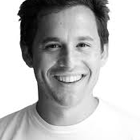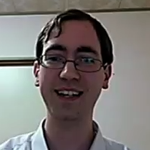Founders reveal how they made their first sale -Part 2
This post was written by Aditya Shukla, who’s been doing founder outreach at Mixergy.
Part 1 of this series had some very interesting stories and lessons. This part reveals some other great stories.
Enjoy and learn from these incredible stories.
Fake it until you make it

Seth Lieberman, Founder of Pangea Media
My first sale at my first company was “fake it until you make it.”
I went for a long weekend vacation right as we were going to market. In the middle my sales guy called me and quit, left his key and laptop in the office and I never saw him again (still haven’t). I showed back up in the office with a small but growing list of users in our opt-in email database (1999) and started looking for anyone advertising on the web. I clicked every banner ad I found and kept every marketing email I got — then I called information for each one and got their phone numbers and addresses and just started dialing. Every day, all day. We were break-even within 4 months.
Selling Prototype

John B. Georges, Founder of NextG Networks
I made my first sale when I was an engineer.
We actually sold the prototype of the product we were developing to a potential customer. The customer wanted it for free to “test it and try it out,” but we needed some cash to survive. So I tried something bold and tested how badly the customer wanted the prototype.
I made up a price that covered our development costs up to that point and added some margin on top of that to help us last a few more months. After some hard negotiating, posturing, and bickering, they eventually went for it!!! The customer liked the product and flew down to our small office and said if we could make more, they would buy it. So we made more, and they purchased more.
We lived on the edge for over a year but eventually turned a profit and took that same product to other customers (we told the new customers that their competitors were buying it), so the new customers purchased even more of it to put into more locations!
Tenacity works

Harley Finkelstein, Chief Platform Officer of Shopify
My first company was called ‘Finkinc’ (founded in 2001), and we grew to become one of the leading collegiate apparel companies in Canada – handling more than 75 faculties and schools coast to coast.
Here’s a bit about my story:
In 2001, as a first year economics student at McGill University, I wanted to sell the university promotional / branded apparel for their student orientation programs. The issue was that they had long term contracts with some very large companies, and there wasn’t much incentive to switch to an unknown and inexperienced student-run supplier.
My tactic was simple: be tenacious. I had to convince them that not only could I deliver on time and maintain their standard of quality, but additionally I had to provide rational for their leaving a much more qualified supplier. My pitch was that I was an owner / operator, meaning that I would be the one that would actually design, print, and ship their garments personally — and I was willing to do so at a much lower price than their current supplier. As such, I provided very strong personal service and sacrificed margins with the objective of ascertaining my first purchase order. After dozens of impromptu visits and phone calls, they agreed to give me a chance.
Harley Finkelstein’s interview
Helping Hand

Patrick McKenzie , Founder of BingoCard Creator
Bingo Card Creator makes bingo cards for elementary schoolteachers. One thing elementary school English teachers want to teach is the Dolch sight words, words identified by an English pedagogist as critical for early readers to learn. They are broken down by grade level. Many teachers know of the existence of Dolch sight words but do not have all 200+ of them memorized according to grade level, so they frequently Google for them. I wrote a page on Dolch Sight Word Lists when there was very little in terms of comparable resources on the public Internet, and included copious suggestions with the lists that,if the teacher wanted to play a nice review game with the class, they should try Dolch sight words bingo. And what better way to make Dolch sight words bingo cards than download the free trial of Bingo Card Creator? The free trial allows users to print up to 15 bingo cards,but most teachers have more than 15 students, so for each student to get their own bingo card they need to buy the software.
About two weeks after launch and one week after that page went up, my first teacher paid $24.95 to play Dolch sight words bingo with class.That activity continued to generate most of my sales for my first year in business. I eventually generalized the strategy from just Dolch sight words into almost a thousand individual activities, and that drives the majority of my bingo business today, to the tune of somewhere north of $25,000 a year in sales.
Reduce Risk

Andrew Warner, Founder of Mixergy
When I started my first business, I called up a guy who sold spaghetti by mail order and said, “I run an email newsletter business and subscribed to other newsletters to see what they’re doing. You seem to advertise in all of them. Why do you buy so many email ads?”
Turns out the spaghetti mail order business had high margins and loyal customers who did a lot of repeat business (go figure). So he only needed to make a few sales for his email ads to pay off. I said, “Would you try an ad in my newsletter?” I think I was only charging $65, a tiny risk for him, so he bought.
Then I called all the other companies that sponsored multiple newsletters and pitched them by saying, “That spaghetti mail order company that knows email newsletters really well is already a sponsor. Do you want to try an ad too?”
We have learned a lot from these incredible stories and we hope the same for you. Don’t forget to share your learning in the comments below
![]()